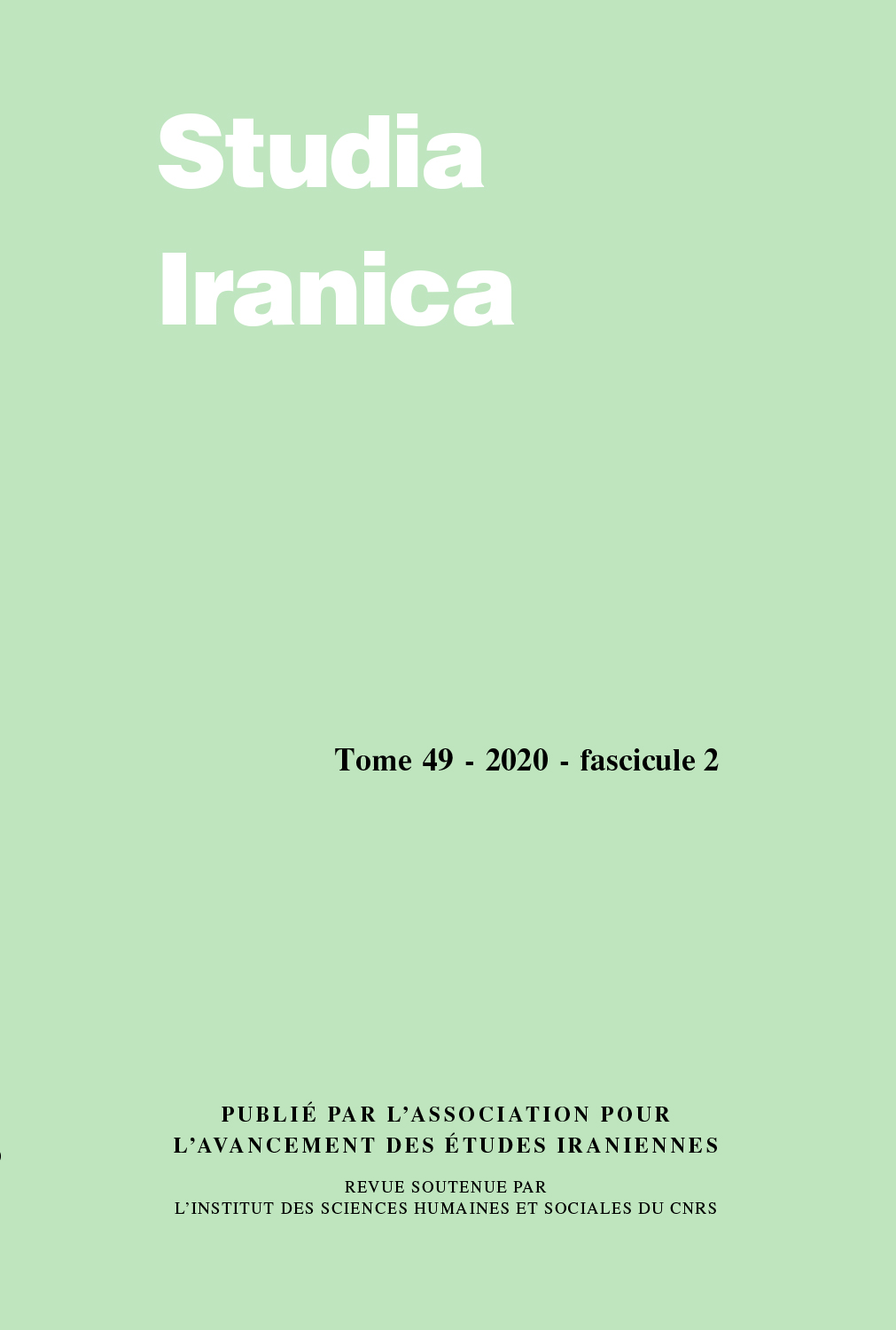next article in this issue  |

Preview first page |
Document Details : Title: Blinded by Power Subtitle: The Rise and Fall of Fath 'Ali Khân Dâghestânî, Grand Vizier under Shâh Solthân Hoseyn Shafavî (1127/1715-1133/1720) Author(s): MATTHEE, R. Journal: Studia Iranica Volume: 33 Issue: 2 Date: 2004 Pages: 179-220 DOI: 10.2143/SI.33.2.519252 Abstract : This article examines the life and career of Fath 'Alî Khân Dâghestânî, an official of inauspicious background who capped an illustrious career at the Safavid court by serving Shâh Soltân Hoseyn as grand vizier between 1715 and 1720. Known for his highhandedness and greed, he fell victim to vicious slander and court intrigue, lost the shah's confidence and was blinded and dismissed, leaving behind a legacy of controversy. Three aspects of Fath 'Alî Khân's public life will be considered. The first part considers his origins and charts his rise to the pinnacle of political power as an outsider-a man with roots in Daghestan and a suspected Sunni. The methods he employed to maintain power once he had acquired it will be analyzed next, with a focus on his relationship with a weak and indecisive shah and his ways of garnering substantial sums of money at a time of great penury, both to feed the royal treasury and to fill his own pockets. Part three documents Fath 'Alî Khân's fall from power, weighing his hubris and his greed, his vulnerability as an outsider, as well as the possibility that he was guilty of (some of) the crimes he was accused of, as contributing factors L'article offre une analyse de la vie et la carrière de Fath 'Alî Khân Dâghestânî, fonctionnaire d'origine peu prometteuse d'un grand avenir à la cour royale, qui couronna sa carrière en devenant le grand vizir de Chah Soltân-Hoseyn entre 1715 et 1720. Connu pour ses façons autoritaires et sa cupidité, il tomba victime d'intrigues orchestrées par des courtisans, perdit l'oreille du Chah, et finit par être aveuglé et renvoyé, en laissant un legs politique controversé. Les interrogations portent sur trois aspects de sa vie publique. Premièrement, l'article examine ses origines et suit son ascension au pinacle du pouvoir en tant qu'un outsider : homme ayant des racines au Daghestan et suspecté d'être sunnite. Les méthodes employées pour se maintenir au pouvoir constituent le sujet de la deuxième partie ; celle-ci se concentre sur ses relations avec un souverain indécis et faible, et sur les procédés mis en exécution pour amasser des revenus substantiels dans une période de pénurie, tant pour alimenter le trésor royal que pour remplir ses propres poches. Enfin, l'article étudie les facteurs de la chute de Fath 'Alî Khân, en évaluant les parts respectives jouées par son caractère, par la fragilité de sa position d'outsider, et enfin par l'éventualité de sa culpabilité dans (certains) des crimes dont il fut accusé. |
|


